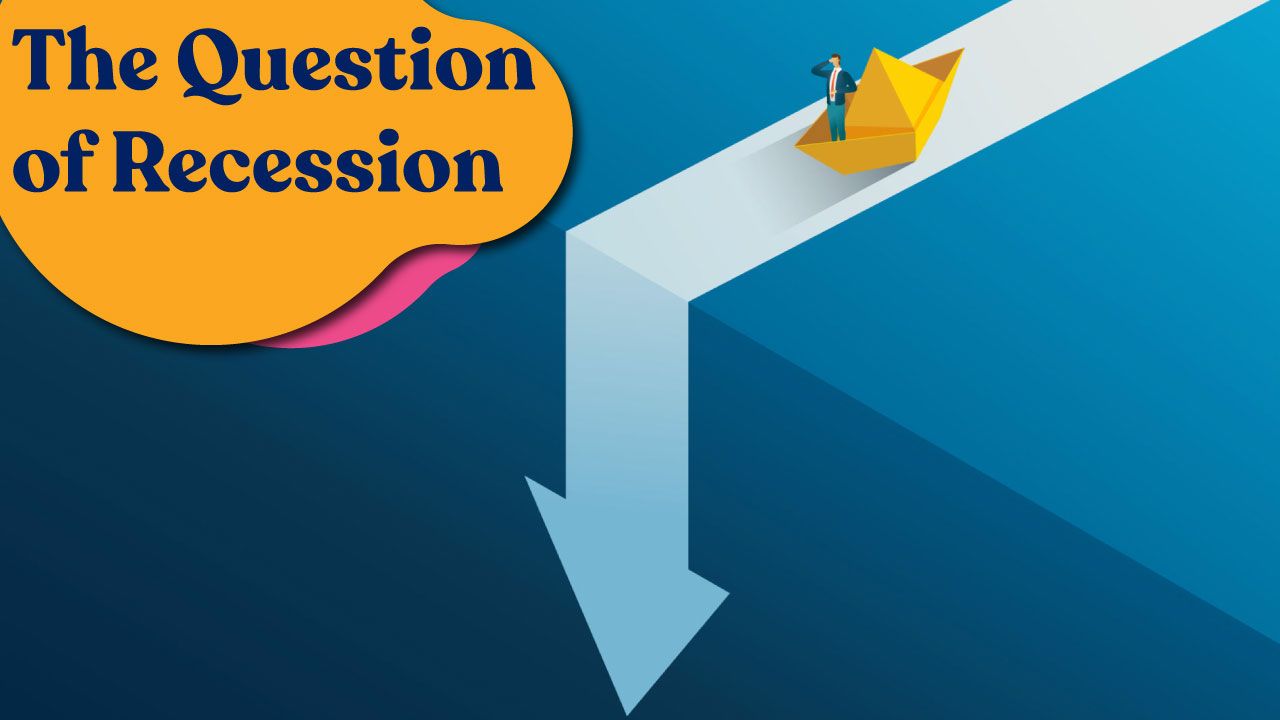THE QUESTION OF RECESSION

Let’s demystify a term that frequently makes headlines but is often misunderstood: recession. It’s easy to get sucked into doom and gloom thinking, which can erode your confidence when approaching corporates and undermine your negotiation.
A recession definition
A recession is typically defined as a significant, widespread and prolonged decline in economic activity across a country or region. A common rule of thumb is that two (2) consecutive quarters of negative gross domestic product (GDP), reflecting a decline in output and income, means recession[1]. However, it's important to note that the term ‘recession’ is not just about numbers and statistics; it has real-life implications for businesses, individuals, and the overall economy.
Economic Downturn definition
While a recession is generally associated with a decline in GDP, an economic downturn can be a broader term encompassing various indicators, such as rising unemployment, falling consumer spending, and decreased business investments. An economic downturn can be a precursor to a recession.
Australia's Economic Situation

As of now, Australia is not officially in a recession. According to credible sources[2], the country experienced an economic downturn due to the COVID-19 pandemic in 2020. However, the subsequent recovery has been strong, with positive GDP growth in recent quarters.
Upside and Downside of a Recession:
Recessions are generally associated with negative impacts on the economy and people's lives. Unemployment rates often rise, businesses struggle, and consumer spending decreases. However, it's not all doom and gloom. Recessions can also serve as a reset button, allowing for necessary adjustments. They can encourage innovation, efficiency, and new business models. Think about companies like Disney, Microsoft, Harvey Norman, Priceline, MYOB, Uber and Airbnb that were all launched during a recession. Also, governments and central banks often implement measures to stimulate the economy, which can lead to long-term benefits. 
Recently you may have seen news coverage that corporate profits are driving inflation[3]. Whilst rising prices are putting pressure on everyday Australians, many companies are reporting record profits. The tourism sector has enjoyed soaring profits, with Qantas seeing an exceptionally high operating margin (the amount of money made on every dollar spent) – a 50% improvement on pre-covid levels.[4]
Companies providing everyday essential items, such as Woolworths and Coles, have posted record net profits. Consumer-facing retailers such as JB Hi-Fi, Rebel, Nick Scali, Bunnings and Target have also enjoyed increased profits. B2Bs like Woodside, BHP and Origin Energy have benefited from increased demand and a rise in profit.
Looking Ahead
While Australia is not currently experiencing a recession, it's essential to keep an eye on various economic indicators to assess the future. Factors such as global economic conditions, domestic policies, and unforeseen events can influence the trajectory. Economists and experts continuously analyse these factors to provide insights and forecasts, but the future remains uncertain.
When considering your corporate partnerships strategy, focus on the facts, not scaremongering. Ensure that you – and your Board – make informed decisions. Target those companies with a good strategic fit and be mindful of those that have bounced back since Covid. These sectors include travel & tourism, energy, food & beverages and tech (especially market disrupting tech)[5]. Even companies that are still in the rebuilding phase will want to create assets, benefits and advantages that make their product or service appealing to customers. A cause partnership is one such asset. It motivates staff & customers, drives loyalty, differentiates brands and provides emotive stories for traditional as well as social media. View your cause as an asset and not a cost, and your approach as an invitation not an ‘ask’. The right cause partner is a valuable asset that can help a company to weather the upcoming storm.
And in turn, their resources, skills and partnership can help your non-profit to not just weather the storm but enable you to Do More of what you Do best – change the world. That’s the power of partnership right there.
Hailey Cavill-Jaspers
[1] Reserve Bank of Australia and Investopedia
[2] RBA and ABS
[3] ABC News 8 June 2023 (research from OECD – Organisation of Economic Cooperation & Development )
[4] ABC News 9 March 2023
[5] Trojan recruitment, February 2023

